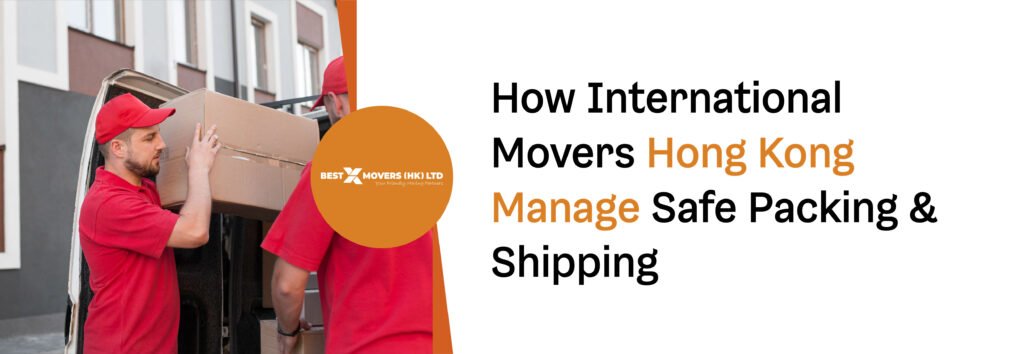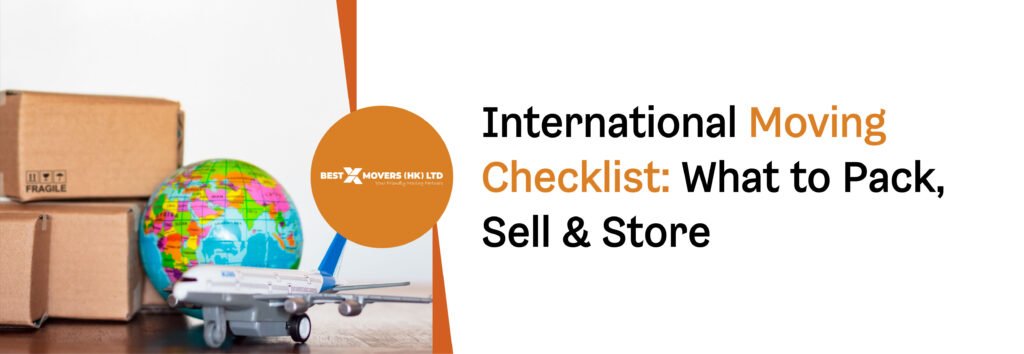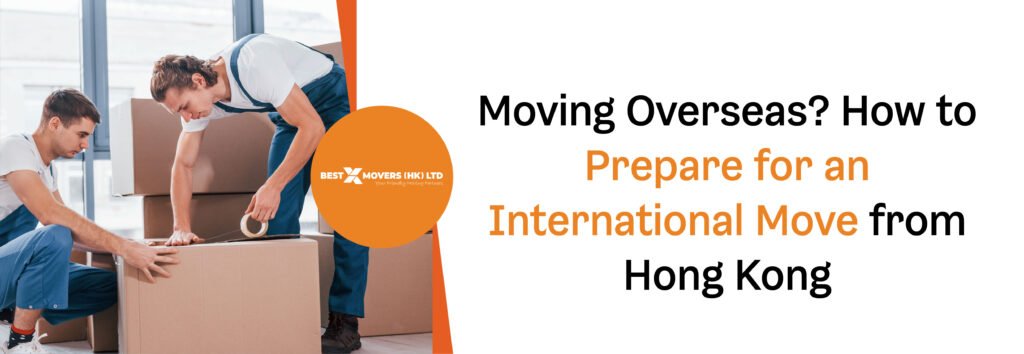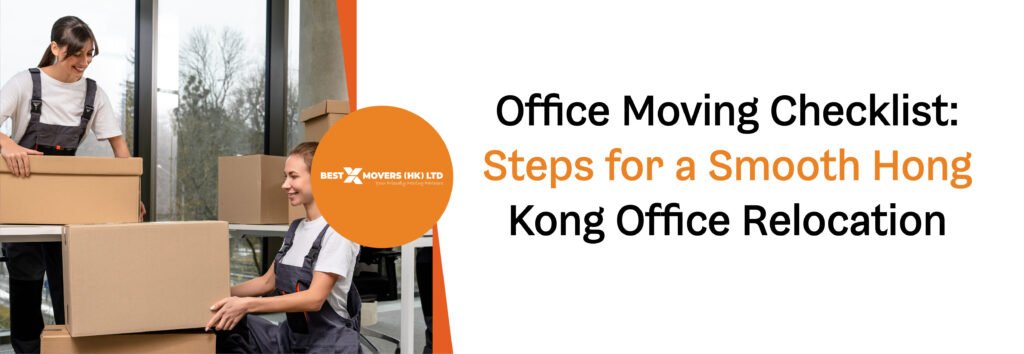How International Movers Hong Kong Manage Safe Packing & Shipping ?
Moving internationally from Hong Kong requires careful planning and expert handling to ensure your belongings arrive safely at their destination. Professional International Movers Hong Kong companies have developed comprehensive systems to manage every aspect of packing and shipping with precision and care. Understanding Professional Moving Standards International moving companies in Hong Kong follow strict industry standards to ensure customer satisfaction and cargo safety. These standards govern everything from initial consultation to final delivery, creating a framework that protects both customers and service providers. Professional movers undergo extensive training in handling techniques, safety protocols, and international shipping regulations. This training ensures that every team member understands the importance of proper procedures and maintains consistency across all operations. The moving industry in Hong Kong operates under both local regulations and international shipping laws. Companies must comply with safety standards, environmental regulations, and customs requirements across multiple countries, making expertise essential for successful operations. Certification and Compliance Moving companies maintain various certifications to demonstrate their commitment to quality service. These certifications cover areas such as safety management, environmental responsibility, and professional standards. Regular audits and inspections ensure that companies maintain their certification status and continue meeting industry requirements. This ongoing oversight helps protect customers and maintains the reputation of the moving industry. Pre-Move Assessment and Planning Before any packing begins, professional movers conduct detailed assessments of customer belongings and requirements. This assessment helps determine the best approach for each specific move and identifies any special considerations needed. The assessment process includes cataloging items, measuring furniture dimensions, and identifying fragile or valuable pieces that require special attention. This information forms the foundation for creating a comprehensive moving plan. Home Survey Process Experienced surveyors visit customer homes to evaluate the scope of work required. They examine access points, check for potential challenges, and discuss customer preferences and concerns. During the survey, movers identify items that may require custom packaging solutions or special handling procedures. This proactive approach helps prevent problems during the actual packing and moving process. The survey results inform decisions about: • Packing materials needed for different types of items • Timeline requirements based on the volume and complexity of belongings• Special equipment necessary for handling large or delicate items Advanced Packing Techniques Professional packing goes far beyond simply putting items in boxes. Trained packers use specific techniques developed through years of experience to maximize protection while optimizing space usage. Different items require different packing approaches based on their size, weight, fragility, and value. Packers assess each item individually and apply the most appropriate technique to ensure safe transport. Layered Protection System The layered protection system involves multiple levels of protection for each item. The first layer provides direct contact protection, while subsequent layers add cushioning and structural support. This systematic approach ensures that even if one protective layer fails, additional layers continue to protect the item. The redundancy built into this system significantly reduces the risk of damage during transport. Weight Distribution Strategies Proper weight distribution within boxes and containers is crucial for safe transport. Packers carefully balance heavy and light items to prevent shifting and maintain stability during movement. Understanding weight limits for different container types helps packers optimize loading while staying within safety parameters. This knowledge prevents overloading and reduces the risk of container failure. Quality Materials and Equipment Professional moving companies invest in high-quality packing materials specifically designed for international shipping. These materials must withstand long journeys, varying weather conditions, and multiple handling events. Specialized Packing Materials Different types of belongings require specific materials for optimal protection. Electronics need anti-static materials, while artwork requires acid-free wrapping to prevent deterioration. Professional-grade bubble wrap provides superior cushioning compared to standard versions. The larger bubbles and stronger plastic film offer better protection against impacts and compression. Custom-sized boxes eliminate wasted space and provide better protection than standard boxes. When items fit properly in their containers, there’s less movement and reduced risk of damage. Protective Equipment Furniture pads and blankets protect large items from scratches and dents during handling. These reusable protective covers are designed specifically for moving applications and provide excellent protection. Stretch wrap secures protective materials in place and prevents items from shifting during transport. Professional-grade stretch wrap maintains its elasticity and adhesion throughout the shipping process. Specialized Handling for Different Items Different categories of belongings require unique handling approaches to ensure safe transport. Professional movers have developed specific procedures for each type of item commonly encountered during international moves. Electronics and Appliances Electronic items are particularly vulnerable to damage from static electricity, moisture, and physical impacts. Professional packers use anti-static materials and create custom cushioning systems for each device. Large appliances require special preparation including cleaning, securing moving parts, and protecting sensitive components. Proper preparation prevents internal damage and ensures appliances function properly after delivery. Artwork and Collectibles Valuable artwork and collectibles receive the highest level of protection through custom crating solutions. These wooden crates provide maximum protection and can be designed to accommodate items of any size or shape. Climate-controlled storage and transport options protect sensitive items from temperature and humidity fluctuations that could cause damage. This service is particularly important for international moves with extended transit times. Furniture and Upholstery Furniture disassembly reduces shipping volume and prevents damage to protruding parts. Professional movers carefully document the disassembly process and securely package all hardware for reassembly. Upholstered furniture receives special protection against stains, moisture, and pest contamination. Sealed protective covers maintain cleanliness throughout the shipping process. Shipping Container Management Container loading requires careful planning to maximize space efficiency while ensuring cargo security. Professional movers use proven loading techniques that protect belongings and comply with shipping regulations. Container Selection Different container types serve different purposes based on cargo requirements. Standard containers work well for most household goods, while specialized containers may be needed for specific items. Climate-controlled containers maintain stable temperature and humidity levels during transport. This option is essential for sensitive items that could be damaged by environmental fluctuations. Loading Strategies Strategic loading places heavier items at the










